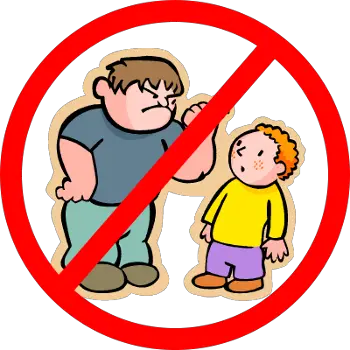Recognizing the Signs of Bullying in Young Children

Once dismissed as an unpleasant but unavoidable aspect of growing up, bullying is now becoming an issue of nationwide focus. Still, it’s not always easy for childcare providers to recognize the signs of bullying among their charges unless a child is actually caught in the act of harming a peer. Victims of bullying can struggle to manage the stress and anxiety which accompanies peer torment, especially young children who have yet to develop coping mechanisms and may not have a vocabulary for the specific abuse they’re encountering. It’s up to childcare providers and parents to look out for the signs of bullying among young children, so the issue can be properly addressed.
Common Signs of Bullying
The most effective way of detecting a bullying problem is to observe the behavior of children suspected of being a target for bullies. While every child is different, there are some common behaviors and physical factors which can indicate the presence of stress and anxiety related to being bullied.
-
Personality Changes – If a child who was once gregarious and outgoing suddenly becomes more withdrawn, angry or clingy with parents, this can be a sign of bully victimization. Any sudden change in a child’s personality should be considered cause for concern, especially if the change is accompanied by other behavioral cues which could indicate bullying or abuse.
-
Frequent Illness Complaints – When children learn that an illness is grounds for staying home from school or daycare, those who are being bullied can see this as their most reliable means of escape each day. Children who make dubious claims of illness in an attempt to go home from daycare could be looking for a temporary reprieve from the harmful attention of a bully, so make a point of observing peer interactions for children who regularly look for ways to go home early or avoid attending daycare altogether.
-
Lost and Damaged Possessions – Broken toys are par for the course in a childcare setting, but when one child’s belongings seem to be frequently damaged or lost, it can indicate the presence of a bully. Because it’s not always easy to keep up with whose possessions are more frequently damaged than others, parental complaints can often be the best source of information in this area. Should a parent complain about lost or broken personal items, childcare providers should make a point of looking for other indicators of bullying.
-
Noticeable Changes in Eating Habits – One of the more reliable indicators a child is being bullied in a daycare setting is a sudden change in appetite. Snacks and meals can be easily stolen by bullies when a caregiver’s attention is diverted, which can cause targets of bullying to become more vocal about being hungry than usual. At the same time, a common symptom of anxiety and stress is a loss of appetite, so a child whose meals seem to go untouched may also be struggling with a bully.
-
Bullying Younger Children – When a child is victimized by bullies, it’s not uncommon for them to seek a method of regaining control by exacting similar torment on younger siblings and other children. If parents complain that their child is bullying a younger sibling at home, or you notice a change in demeanor towards younger children in your care, it’s wise to look for signs that the offending child is actually a victim of bullying himself.
Preventing and Addressing Bullying in a Childcare Setting
During early childhood, children are building a foundation for healthy interpersonal relationships. During these formative years, early childhood educators and childcare providers are uniquely placed to both prevent and address bullying by making a point of discussing positive friendship behavior during classroom time. In addition to watching closely for signs of bullying behavior, childcare providers should actively praise children who are caught exhibiting good behavior towards their peers without adult urging. Placing a strong emphasis on sharing, helping and being inclusive can help to prevent bullying among young children, and to address an existing problem.
Including parents in your anti-bullying efforts is essential, as is listening to those who complain about unexplained injuries, loss of possessions or behavioral changes in their child. Bullying in early childhood can be a continuing problem as children get older, with less assertive children continuing to experience these behaviors and more assertive children continuing to exhibit them. A strong effort to curb and discourage bullying in early childhood daycare settings can have a strong, positive impact in later years.


In observing a day care situation, my attention was drawn to a very aggressive 3 year old girl that terrorized children and adults alike in an unmanageable fashion. Her behavior was not corrected nor redirected by the teacher on charge. Her parent was addressed and did not seem to care. Is there any link between ADHD and bullying? This child in question had an unusual amount of energy that did not get satisfied or disquieted or funneled to an constructive activity. Are Day Care staff instructed in how to spot and handle bullying at such a young age? Should curriculums in Day Cares address how to teach children to tell if they are being bullied? And has research linked parent abuse to child bullying?In unstructured private pay day cares, I think more attention should be given to helping teachers with potential bullying problems and providing curriculums that keep the classroom more structured and children challenged so that behavior problems will not have a chance of erupting into serious problems such as bullying, thereby protecting our children.